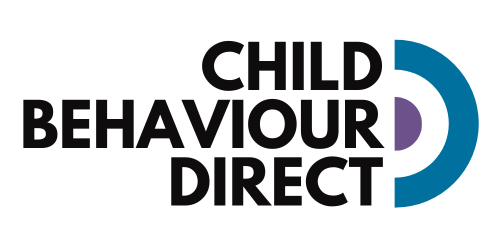WHY CHILDREN TELL LIES
Understanding and Addressing Dishonesty in Children
Have you ever wondered why your child tells lies and hides the truth? If you have, you're not alone. Discovering that your child has been deceitful can be incredibly frustrating for a parent. Understanding the reasons behind this behaviour is crucial for addressing it effectively.
In this blog, we will explore five key reasons why children lie, provide practical solutions to tackle this behaviour and create a healthier and more honest relationship with your child.
Five Key Reasons Children Lie:
1
To Protect Themselves
We've all likely told a lie to protect ourselves at some point. Children, like adults, might try to cover up their mistakes and misdeeds to avoid punishment or backlash. For example, a child might lie about doing their homework and tell the teacher that the dog ate it if they think they will get grounded or face detention.
2
To Fit In
Children who lack self-confidence may lie to appear more impressive, talented, or unique. This can be an attempt to fit in with their peers. For instance, a child who wasn't invited to a party might make up a story about another elaborate event they attended instead to save face.
3
To Manipulate You
Dealing with a child who lies perpetually can be challenging for any parent. Children may lie to manipulate situations or to prevent parents from knowing the truth. If a child harbours resentment, they might tell stories to exert control or punish you, trying to convince you that you are wrong and gaining power over you.
4
For Social Reasons
We've all likely told a white lie to avoid hurting someone's feelings. Children might do the same to be polite and sociable and avoid awkward situations. For example, they may say they like someone's new outfit when they don't. As a parent, you need to decide if these minor lies are acceptable given the circumstances.
5
Unclear Reasons
Sometimes, it's unclear why children lie. It might be due to lenient parenting that doesn't address the problem or overly strict parenting that leads them to lie out of fear of the consequences. They might also lie to escape reality and create a fantasy world.
They may lie to hide the truth because it may be hurtful. For example, they might be having a great time with their other parent, whom you are divorced from, and they don't want to upset you or feel disloyal. Children who have been abused may lie out of fear of repercussions, having been told not to tell anyone.
Finding Solutions
Trust is the foundation for all families to build strong, happy, healthy relationships. To make a change, rather than focusing solely on this inappropriate behaviour, look for solutions that allow you to move forward. Here are some strategies that may help:
Be a Good Role Model
Children learn by observing those around them. They will likely pick up this habit if you or their siblings lie. Start by modelling honesty and integrity in your behaviour and showing them ways to communicate honestly. For example, if you make a mistake, admit it and show how to handle it truthfully.
Create a Safe Environment
Children need to feel safe telling the truth. They are more likely to lie if they fear backlash for being honest. Stay calm and non-reactive, creating an environment where your child feels safe talking. For instance, instead of reacting angrily when your child admits to a mistake, thank them for their honesty and discuss ways to avoid it happening again.
Take Action
Face the problem head-on by showing your child that you know they are lying. Have difficult conversations before resentment builds up. Use phrases like:
· "I don't think that is true."
· "I would prefer it if you told me the truth."
· "It hurts my feelings when you don't tell the truth."
Ask Questions
Use the situation as a teaching moment to build a positive relationship with your child. Instead of being critical, ask questions to understand why they feel the need to lie. Asking questions such as:
· "Has something happened that makes you feel you need to lie?"
· "Are you afraid someone will do something hurtful if you tell the truth?"
· "Do you need help with something?"
Praise Their Honesty
Acknowledge and praise your child when they are honest. This positive reinforcement will encourage more truthful behaviour. For example, when your child admits to breaking a vase, praise them for their honesty.
Use Consequences
If your child repeatedly lies, use age-appropriate consequences. For example, if they lie about being at a friend's house but are at a party, they might not be allowed to go to their friend's house next time they ask.
Conclusion
Raising honest children is crucial for their development. Teaching them the value of honesty will help them build trust and positive relationships in the future. Focus on establishing a strong, positive relationship with your child through open communication and trust.
You can make a positive change for your family using these tips and the resources from the Parent's Guide to Children's Behaviour.
Remember, honesty is a critical value that will set your child on the right path in life.
To your success!

